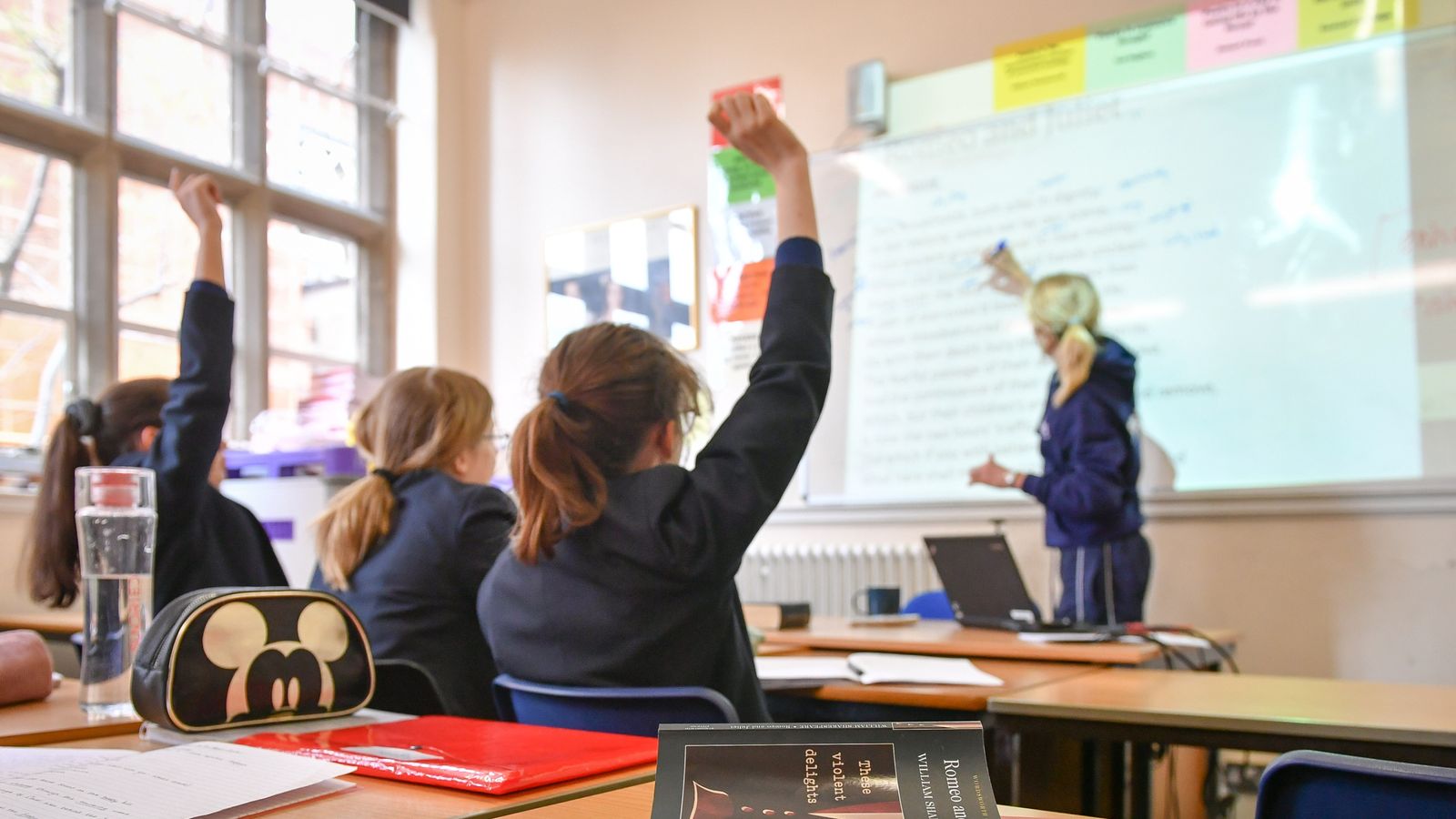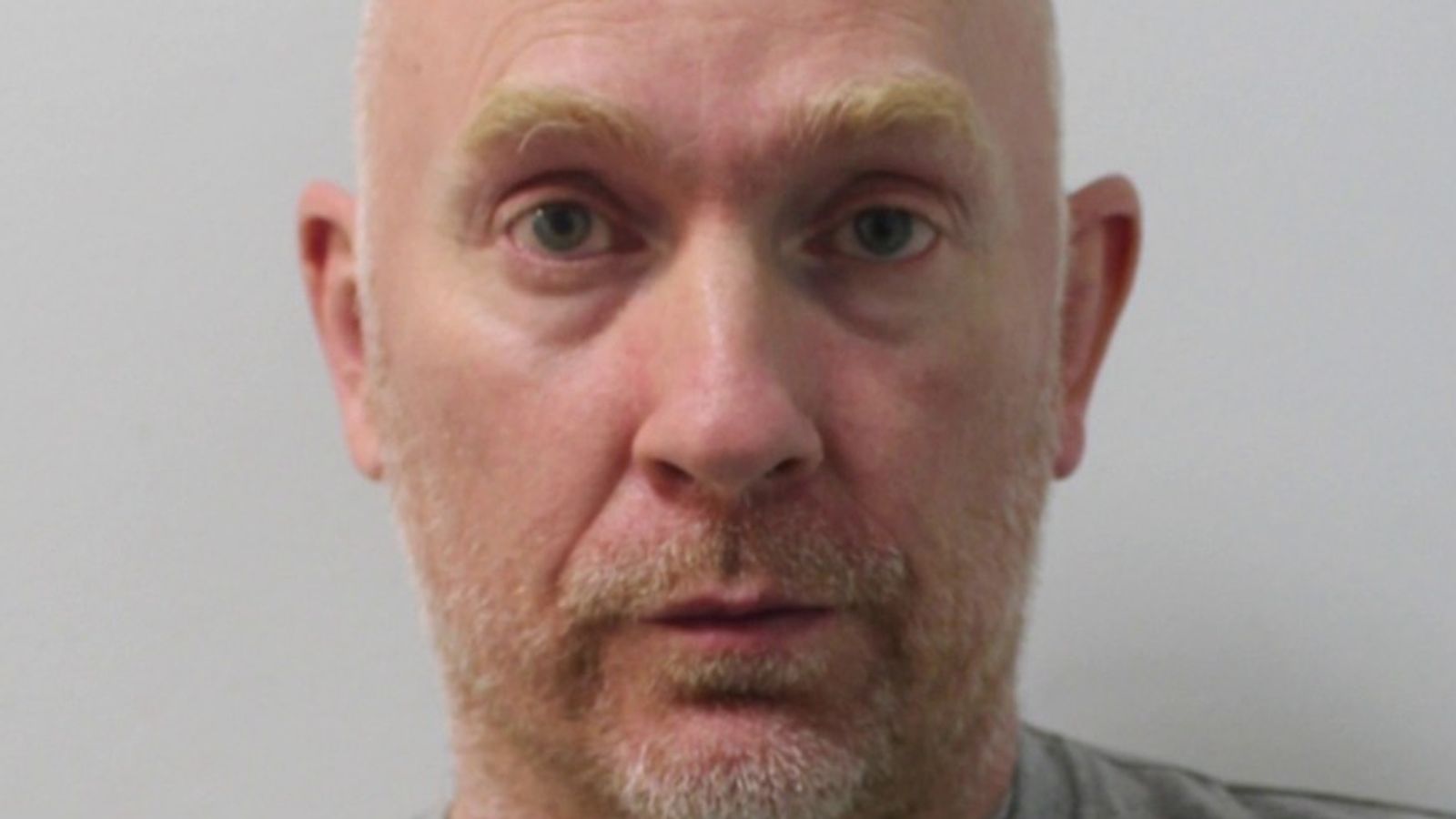Pupils falling behind in English and maths will be given extra support under new plans set out by the education secretary – but the move was criticised as a “damp squib” by a teachers’ union.
Education Secretary Nadhim Zahawi told Sky News that the strategy would help those who did not have the “wherewithal” to push them in the same way that he was as an 11-year-old who did not speak a word of English.
Mr Zahawi cited his personal background as he set out details of a new education white paper.
The government said the plans would build on a target, set out in its Levelling Up strategy, for 90% of pupils to leave primary schools with expected standards in literacy and numeracy – up from just 65% in 2019.
Under the government’s “parent pledge”, schools will identify pupils at risk of falling behind, offering them support including tutoring sessions in small groups and parents will be kept informed of progress.
The white paper also aims for the national average GCSE grade achieved in English and maths to rise from 4.5 in 2019 to five by 2030.
Meanwhile, there will be more powers for councils to set and run their own academy trusts and to encourage more primary schools to become academies.
Ukraine conflict: ‘Day of reckoning’ faces Putin with evidence of war crimes, says Nadhim Zahawi
Sizewell C nuclear power station: Government to take 20% stake in £20bn next-generation scheme
Employers ‘breaking the law’ on maternity rights, says attorney general
In addition, all schools will be required to have a week of at least 32.5 hours’ length by September 2023.
Mr Zahawi told Sky News: “I’m very fond of speaking about my background of being an 11-year-old who couldn’t speak a word of English but with parents who had the wherewithal to push me and look where I am today.
“I want the system to work for every child, wherever they are, at the right place at the right time, even with those whose parents who don’t have the wherewithal or have no parents.
“It’s a real ambitious target to make sure every school in our country is high performing.
“At the moment only two thirds of children complete primary school with the ability to read, write and do maths to an acceptable level – that’s not good enough. I want to get that to 90%.”
Mr Zahawi said a national tutoring programme – designed to help pupils whose education had been disrupted by the pandemic – had seen a million blocks of tutoring already delivered, with another million to come by the end of school year, to a total of six million by end of the current parliament in 2024.
“Tutoring used to be the privilege of fortunate parents, wealthier parents, it’s now available to every parent,” the education secretary said.
“I want parents watching this programme to ask their schools ‘are they participating in the national tutoring programme?’ because we want to make sure that we deliver six million blocks of 15 hours of tutoring for children for recovery.”
The government previously faced criticism over the catch-up programme when Sir Kevan Collins, appointed to lead it, resigned over a lack of funding.
Kevin Courtney, general secretary of the National Education Union, said of the white paper: “I am afraid it is a damp squib.”
Mr Courtney told Sky News that the plans failed to address the issues of child poverty, school funding and teacher recruitment.
Labour said it was a “smoke-and-mirrors announcement”, arguing that developing good reading, writing and maths skills should be fundamental to the school system not an “add on”.
Shadow education secretary Bridget Phillipson said the strategy was “distracting from the business of teaching with yet more tinkering with school structures whilst offering nothing to change children’s day to day experience in the classroom”.





